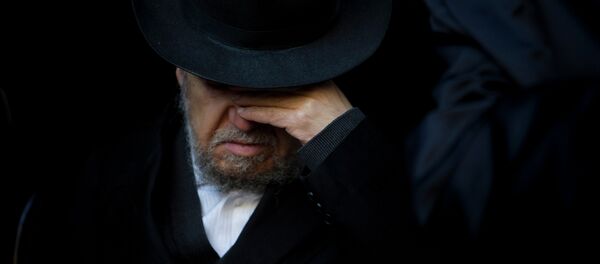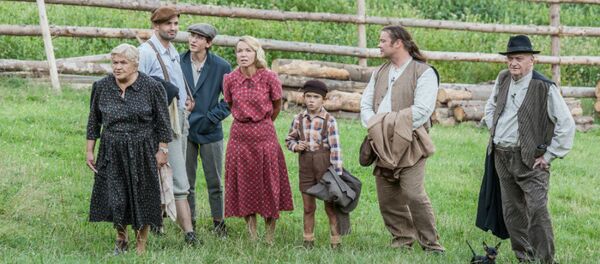The 102-year-old retired neonatologist, who lives in Berlin, became the oldest person to receive a PhD in an effort to right the injustice done to her because of her Jewish heritage.
When a 25-year-old Rapoport, née Syllm, submitted her thesis on diphtheria at the University of Hamburg, Adolf Hitler had been in power for five years. Although Rapoport had been raised Protestant, her mother was Jewish and this made her a "a first-degree crossbreed" according to Nazi racial categorizations.
— WJC (@WorldJewishCong) May 15, 2015
"I was told I wasn’t permitted to take the oral examination," Rapoport told the Wall Street Journal, explaining that despite praise from professors — even Nazi party members — she was branded as ineligible for further academic achievement.
"My medical existence was turned to rubble," she said of the dead-end to her research at a moment when diphtheria was wreaking havoc among children across the US and Europe. "It was a shame for science and a shame for Germany."
She was one of many "non-Aryan" academics purged from German universities for "racial reasons" during the rise of the Third Reich. Compared to many such intellectuals and researchers, Rapoport was lucky and made it to the United States instead of a concentration camp.
While doing internships in New York and Ohio, she applied to 48 different medical schools before being accepted at the Women’s Medical College of Pennsylvania in Philadelphia, where she would earn her MD.
In 1944 while working at a Cincinnati hospital she met, and later married an Austrian-Jewish physician and biochemist, Samuel Mitja Rapoport. Her career flourished and her family grew, but her and her husband's connections to the Communist Party brought them unwanted attention from the government and the House Un-American Activities Committee.
The family returned to Europe, eventually settling in East Germany.
"I have never felt bitterness," she said. "I’ve been shockingly lucky in all this. For me it all came out well: I had my best teachers in the U.S., I found my husband, I had my children."
But the denial of her dissertation always weighed on her.
When her story came to the attention of the dean of Hamburg University, Dr. Uwe Koch-Gromus, it was unclear at first if there would be too many legal and practical obstacles created by the intervening 77 years to finally let Rapoport defend her thesis.
But neither the dean nor Rapoport was content to settle for granting her an honorary degree, so, after pounding out a pathway to complete the process, Rapoport set about hitting the books for her defense.
Her failing eyesight meant she had to rely on friends and relatives to help with Internet research which they would relay to her by phone. The cramming paid off, and she successfully incorporated the almost 80 intervening years of diphtheria research into an intense 45-minute session of questioning by three professors, and was granted her doctorate.
"It was a very good test," said the dean. "Frau Rapoport has gathered notable knowledge about what’s happened since then. Particularly given her age, she was brilliant."
Rapoport appears to be the oldest person ever to receive a PhD, beating out a 97-year-old German cited in the latest edition of the Guinness Book of World Records.




